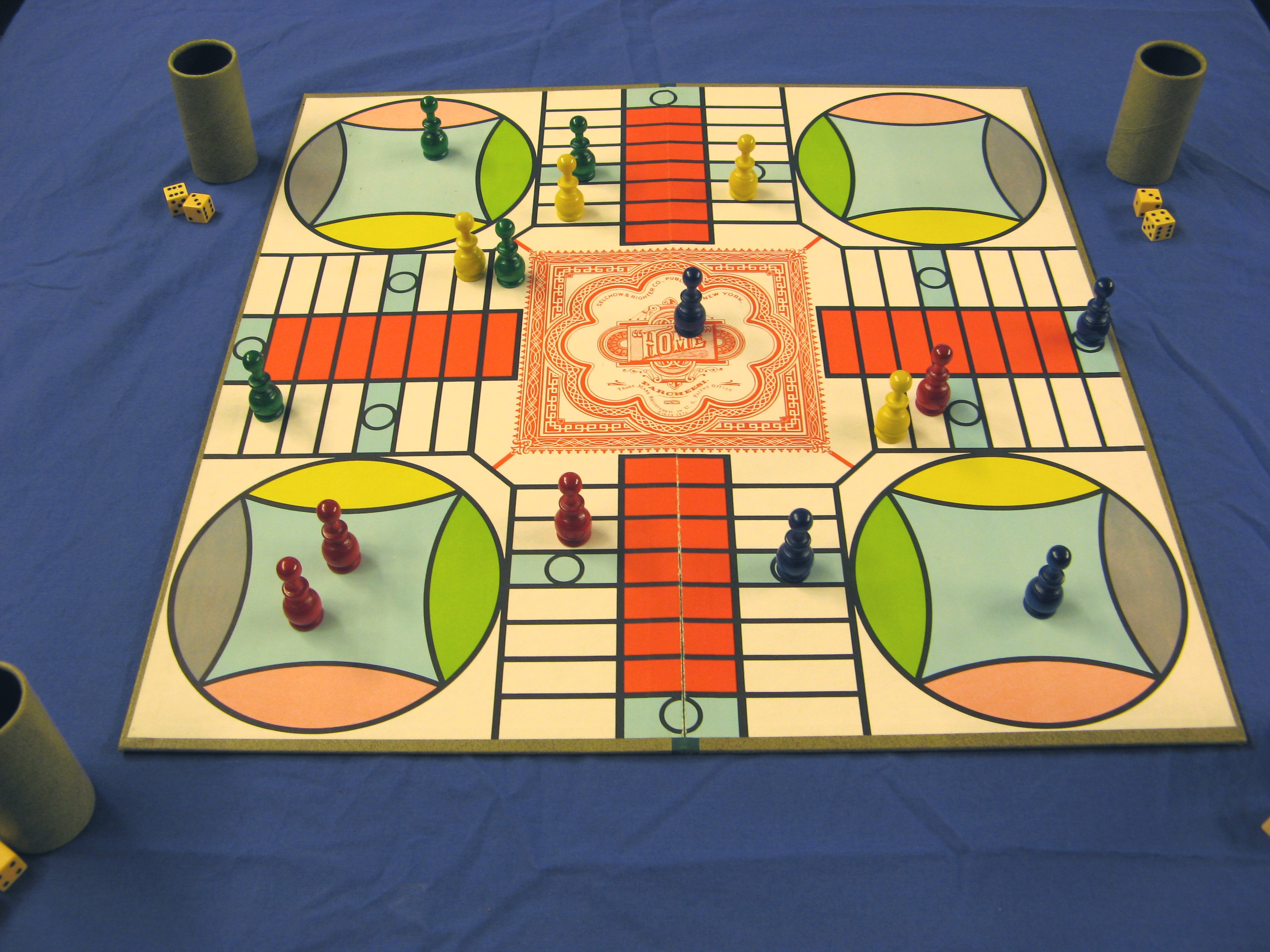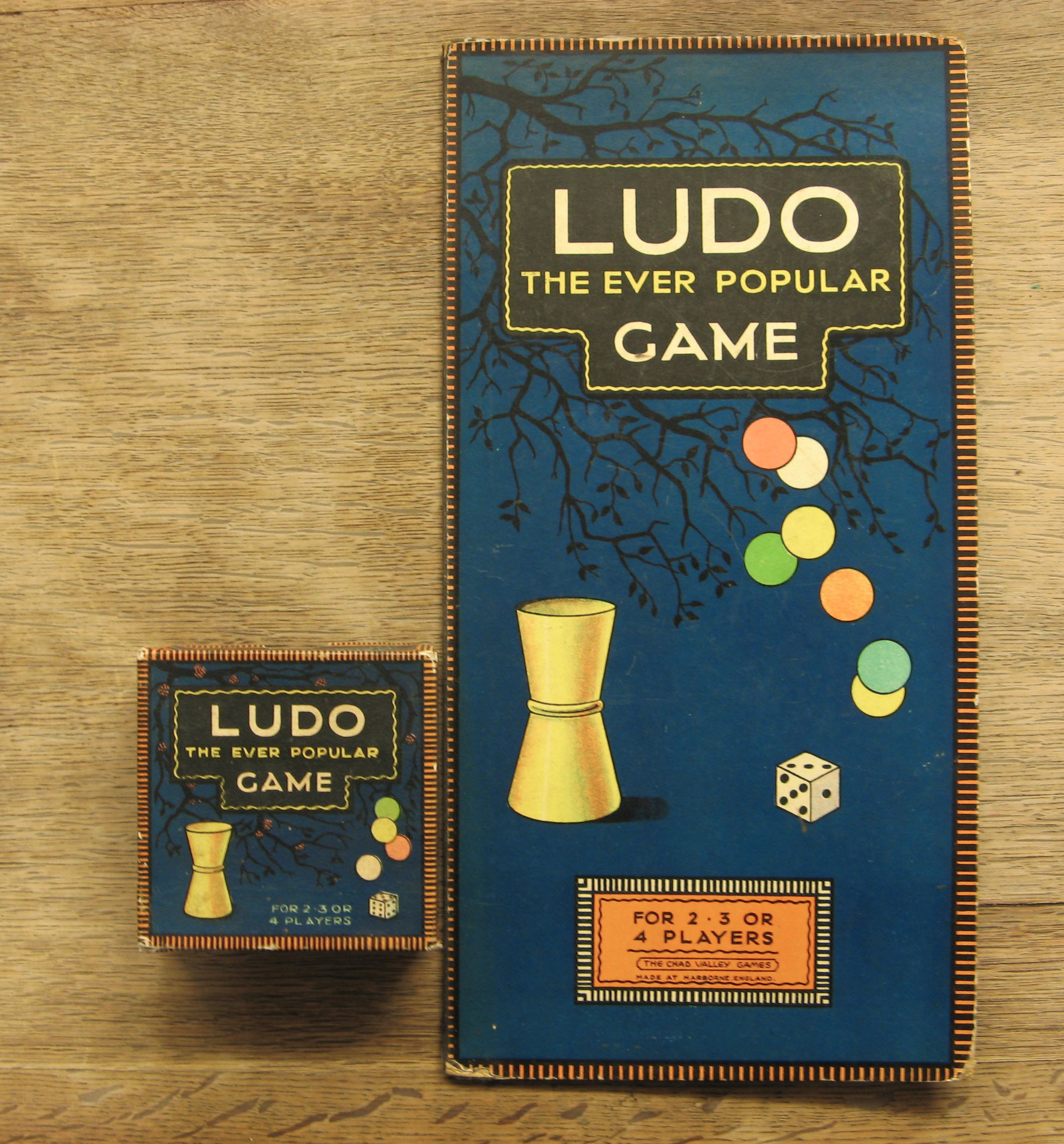|
Jeu Des Petits Chevaux
''Jeu des petits chevaux'' () is a French cross and circle game, closely related to ludo Ludo (; ) is a Abstract strategy game, strategy-based board game for two to four players, in which the players race game, race their four from start to finish according to the rolls of a single dice, die. Like other cross and circle games, Ludo .... It consists of moving several pawns (called horses) to the home reserved for their color. Each player will receive between 1 and 3 horses in general. The first player to reach the last triangular square wins the game. Rules Two to four players each have one or more horse pawns, and play by rolling a dice in turn. A player must first roll a 6 with the dice to be able to remove a horse from his stable. He must then make it go through all the squares located on the periphery of the board, moving it forward by a number of squares equal to the result of the die. The pawns are advanced clockwise. There are different special cases. Thus, when ... [...More Info...] [...Related Items...] OR: [Wikipedia] [Google] [Baidu] |
Parcheesi
''Parcheesi'' is a brand-name American adaptation of the Indian cross and circle board game Pachisi, published by E. G. Selchow & Co and Winning Moves Games USA. Equipment ''Parcheesi'' is typically played with two dice, four pieces per player and a with a track around the outside, four corner spaces and four ''home paths'' leading to a central end space. The most popular ''Parcheesi'' boards in America have 68 spaces around the edge of the board, 12 of which are darkened ''safe spaces''. Each corner of the board contains one player's ''nest'', or . Setup * Each player positions their four single colored pieces in their respective starting nest. * Each player rolls a single die to determine player order. The player with the lowest roll goes first. * The order of players' turns moves to the next player on the current player's left. * Pieces move from the nest to the colored starting space to the left of the nest, per rules in the following section. Rules Gameplay A player r ... [...More Info...] [...Related Items...] OR: [Wikipedia] [Google] [Baidu] |
Ludo (board Game)
Ludo (; ) is a Abstract strategy game, strategy-based board game for two to four players, in which the players race game, race their four from start to finish according to the rolls of a single dice, die. Like other cross and circle games, Ludo originated from the Indian game Pachisi. The game and its variations are popular in many countries and under various names. History Ludo has its origins in the Indian game of Pachisi, created in India in the sixth century CE. It was modified to use a cubic die with a die cup and patented as "Ludo" in England in 1896 by Alfred Coller.Coller eventually patented the game and sold it as "Royal Ludo". The board game Uckers, popular in the Royal Navy, is based on Ludo. Ludo board Special areas of the Ludo board are typically coloured bright yellow, green, red, and blue. Each player is assigned a colour and has four tokens in their colour. The board is normally square with a cross-shaped , with each arm of the cross having three columns of squ ... [...More Info...] [...Related Items...] OR: [Wikipedia] [Google] [Baidu] |
Cross And Circle Game
Cross and circle is a board game design used for race games played throughout the world. Design The basic design comprises a circle divided into four equal portions by a cross inscribed inside it like four spokes in a wheel; the classic example of this design is yut. The term "cross and circle game", however, is also applied to boards that replace the circle with a square, and cruciform boards that collapse the circle onto the cross; all three types are topologically equivalent. Ludo and '' Parcheesi'' (both descendants of pachisi) are examples of frequently played cruciform games. The category may also be expanded to include circular or square boards a cross which are nevertheless quartered ( Zohn Ahl), and boards that have more than four spokes ('' Aggravation'', ''Trivial Pursuit''). The gameboard for the Aztec game patolli consists of a collapsed circle an interior cross and thus has the distinction of being a cross that a circle (topologically), without being a cro ... [...More Info...] [...Related Items...] OR: [Wikipedia] [Google] [Baidu] |
Ludo (board Game)
Ludo (; ) is a Abstract strategy game, strategy-based board game for two to four players, in which the players race game, race their four from start to finish according to the rolls of a single dice, die. Like other cross and circle games, Ludo originated from the Indian game Pachisi. The game and its variations are popular in many countries and under various names. History Ludo has its origins in the Indian game of Pachisi, created in India in the sixth century CE. It was modified to use a cubic die with a die cup and patented as "Ludo" in England in 1896 by Alfred Coller.Coller eventually patented the game and sold it as "Royal Ludo". The board game Uckers, popular in the Royal Navy, is based on Ludo. Ludo board Special areas of the Ludo board are typically coloured bright yellow, green, red, and blue. Each player is assigned a colour and has four tokens in their colour. The board is normally square with a cross-shaped , with each arm of the cross having three columns of squ ... [...More Info...] [...Related Items...] OR: [Wikipedia] [Google] [Baidu] |

